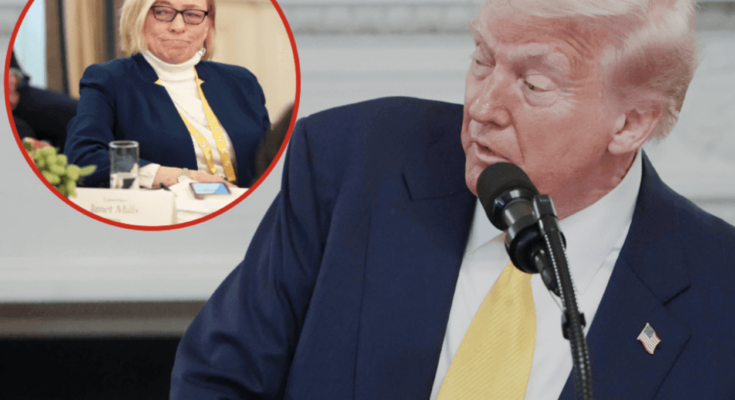In a heated political standoff, former President Donald Trump has defended his executive order barring transgender women from competing in women’s sports, setting the stage for a fierce legal and political battle with Maine Governor Janet Mills. Trump, who has long positioned himself as a champion of what he calls “fairness in women’s sports,” made it clear that failure to comply with his directive could have serious consequences for Maine, including a potential loss of federal funding.
Trump’s Executive Order Sparks Controversy
Trump’s executive order, which prohibits transgender women from participating in women’s athletic competitions, has reignited national debates over gender identity, fairness in sports, and federal authority. The order, issued swiftly, prompted immediate compliance from the National Collegiate Athletic Association (NCAA), a move that Trump hailed as a major victory for his administration’s policies.
Speaking on the matter, Trump asserted that his decision aligns with the values of most Americans, particularly those in Maine. He emphasized that the order is meant to protect the integrity of women’s sports and ensure a level playing field, arguing that allowing transgender women to compete puts biological female athletes at an unfair disadvantage.
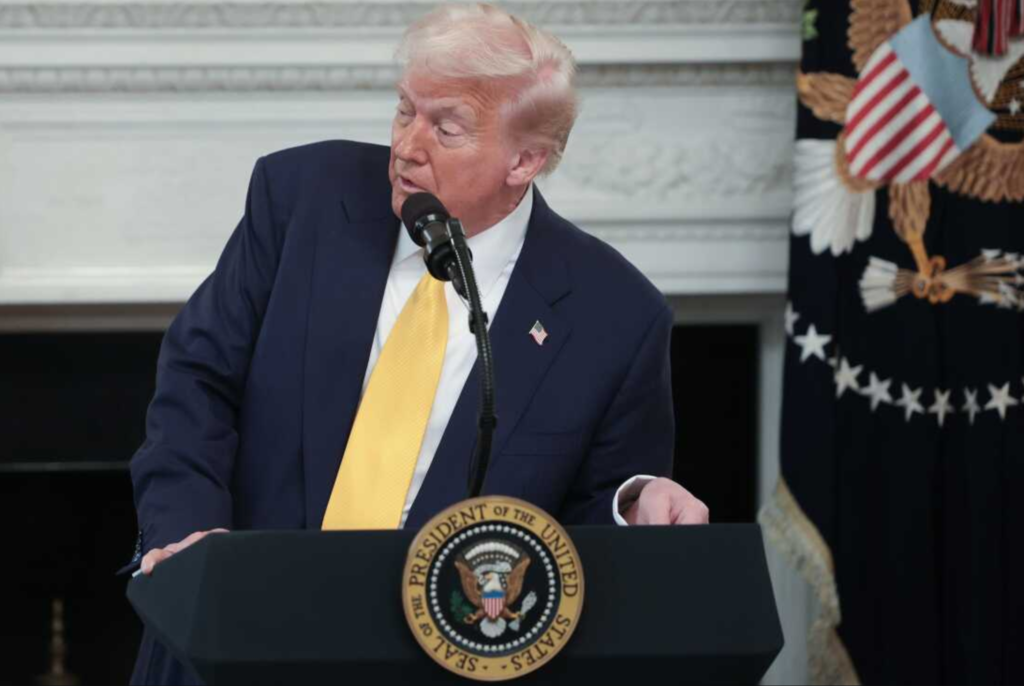
Governor Mills Faces Pressure
However, Governor Janet Mills has expressed strong opposition to the executive order, stating that it undermines the rights of transgender individuals and contradicts Maine’s policies promoting inclusivity and equal opportunity. She has signaled that her administration may resist implementing the order, setting up a potential legal showdown.
Trump, in response, delivered a stern warning to Mills, stating that non-compliance could result in the withdrawal of federal funding for the state. This threat has raised significant concerns among Maine officials, as federal aid plays a crucial role in supporting the state’s education, infrastructure, and healthcare programs.
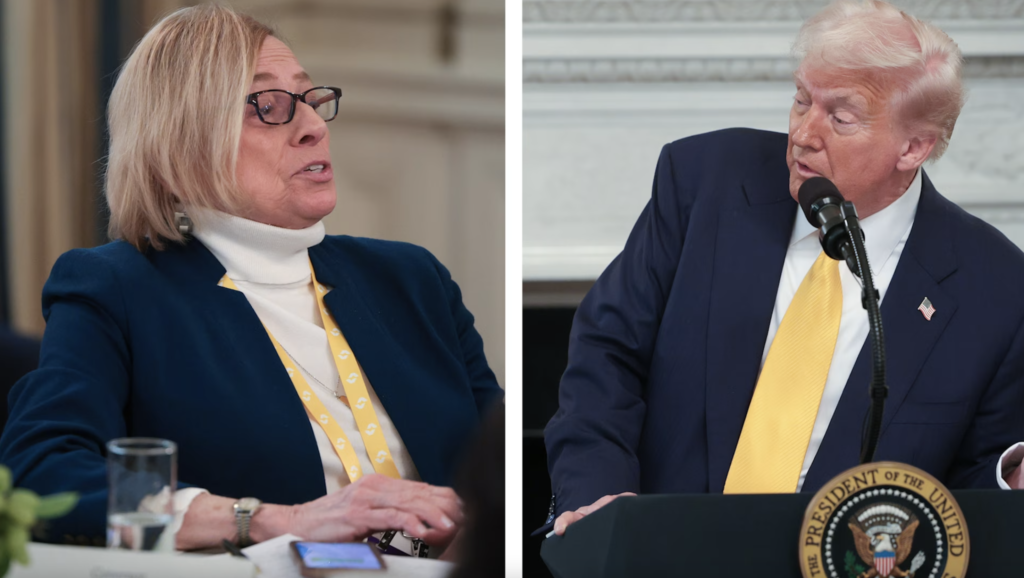
Legal Battle Looms
Legal experts anticipate that the dispute could escalate into a courtroom battle, with Mills likely to challenge the order on constitutional grounds. The case could become a landmark legal confrontation over the limits of federal power and the rights of transgender athletes.
“This is not just about sports,” said a political analyst. “It’s about the broader question of how far an executive order can go in dictating social policy at the state level. If Mills defies the order, we could see this case making its way to the Supreme Court.”
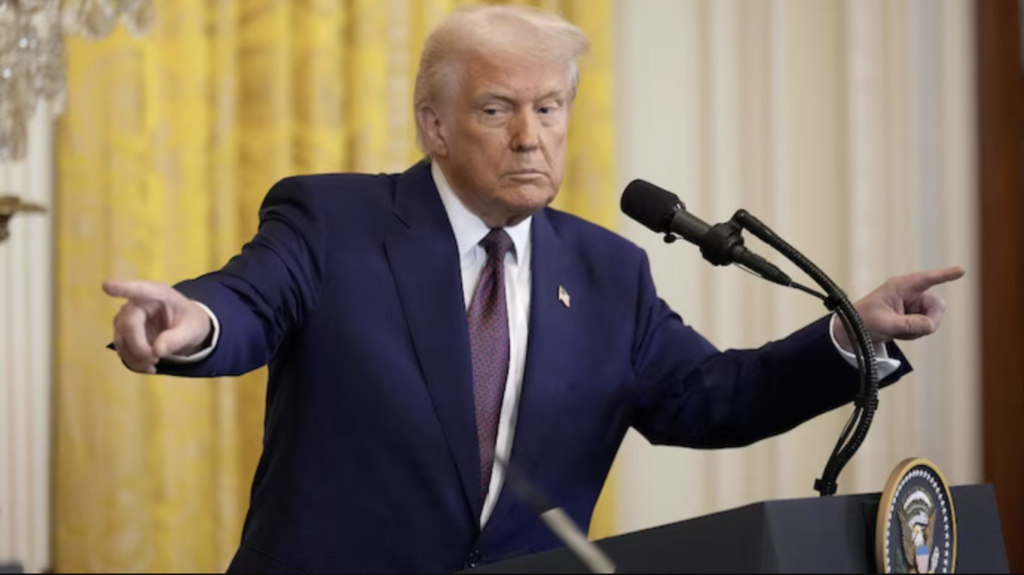
Public Opinion and Political Stakes
Trump has doubled down on his belief that public sentiment in Maine is on his side, claiming that the majority of residents support his stance against transgender women competing in female sports categories. While some polls indicate that a segment of the population shares these concerns, others suggest that Maine residents are deeply divided on the issue.
For Mills, the stakes are high. Trump has suggested that her political career could be at risk if she opposes the order, framing the controversy as a test of her leadership. With elections on the horizon, Mills must navigate a delicate balance between upholding her progressive values and responding to the concerns of voters who may align with Trump’s position.
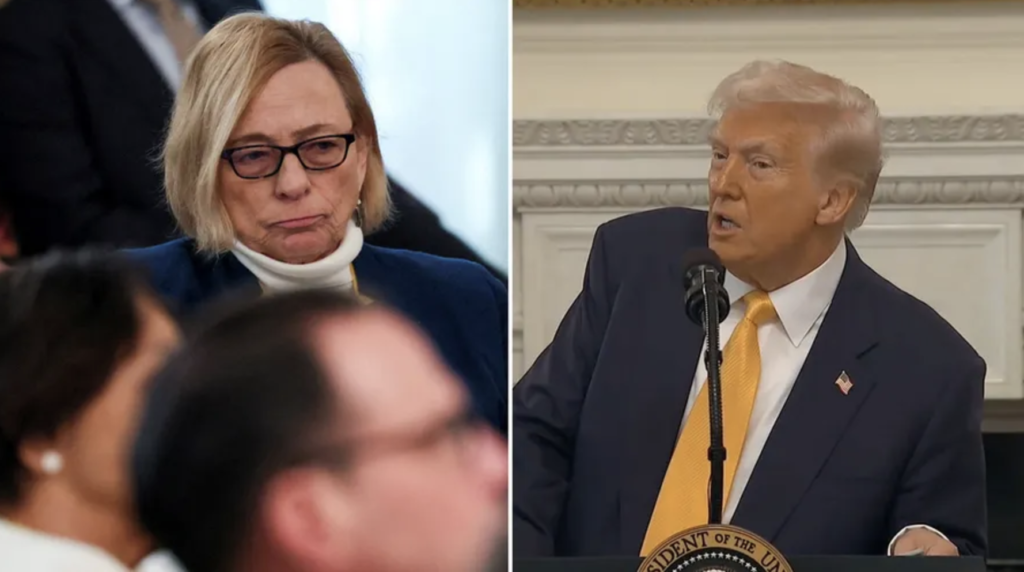
The NCAA’s Compliance and Broader Implications
The NCAA’s quick compliance with Trump’s order underscores the significant influence that governing bodies in sports hold in shaping policies on gender and competition. This decision has sent shockwaves through the sports world, with advocates on both sides of the debate voicing strong opinions.
Supporters of Trump’s order argue that it safeguards the integrity of women’s athletics, while critics contend that it discriminates against transgender individuals and undermines progress toward greater inclusivity in sports. The NCAA’s move to follow the executive order without resistance suggests that other sports organizations may also fall in line, potentially setting a new precedent for gender policies in athletics.
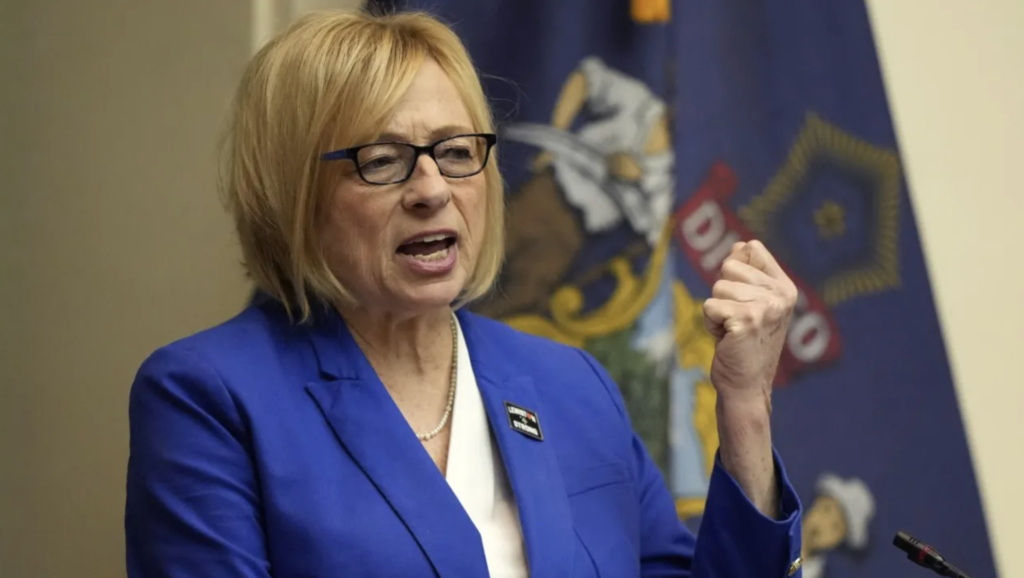
Federal Funding as Leverage
Trump’s threat to withhold federal funding highlights the broader issue of how financial incentives are used to enforce compliance with federal directives. This tactic has been employed in various policy areas, from education to healthcare, but its use in a social policy debate of this magnitude is drawing widespread scrutiny.
“This raises ethical questions about whether federal funding should be used as a tool to coerce states into adopting specific policies,” said a legal expert. “It sets a precedent that could be used in future administrations for a variety of issues.”
Mobilizing Political Support
Beyond the immediate policy implications, the controversy has energized Trump’s supporters, many of whom see the issue as a defining battle in the broader cultural and political landscape. Trump has urged his base to remain engaged, suggesting that this fight will play a crucial role in upcoming elections.
On the other side, LGBTQ+ advocacy groups and civil rights organizations have ramped up their efforts to push back against the order, organizing protests and legal challenges. The clash between these opposing forces is expected to shape the national conversation on transgender rights and federal authority in the months to come.
What’s Next?
As the standoff between Trump and Mills intensifies, all eyes will be on Maine’s next move. Will the governor challenge the order in court? Will other states join the legal battle? And how will this conflict influence the broader political landscape?
One thing is certain: the debate over transgender athletes in women’s sports is far from over. With legal, political, and social ramifications at stake, the nation will be watching closely as this high-profile clash unfolds.
